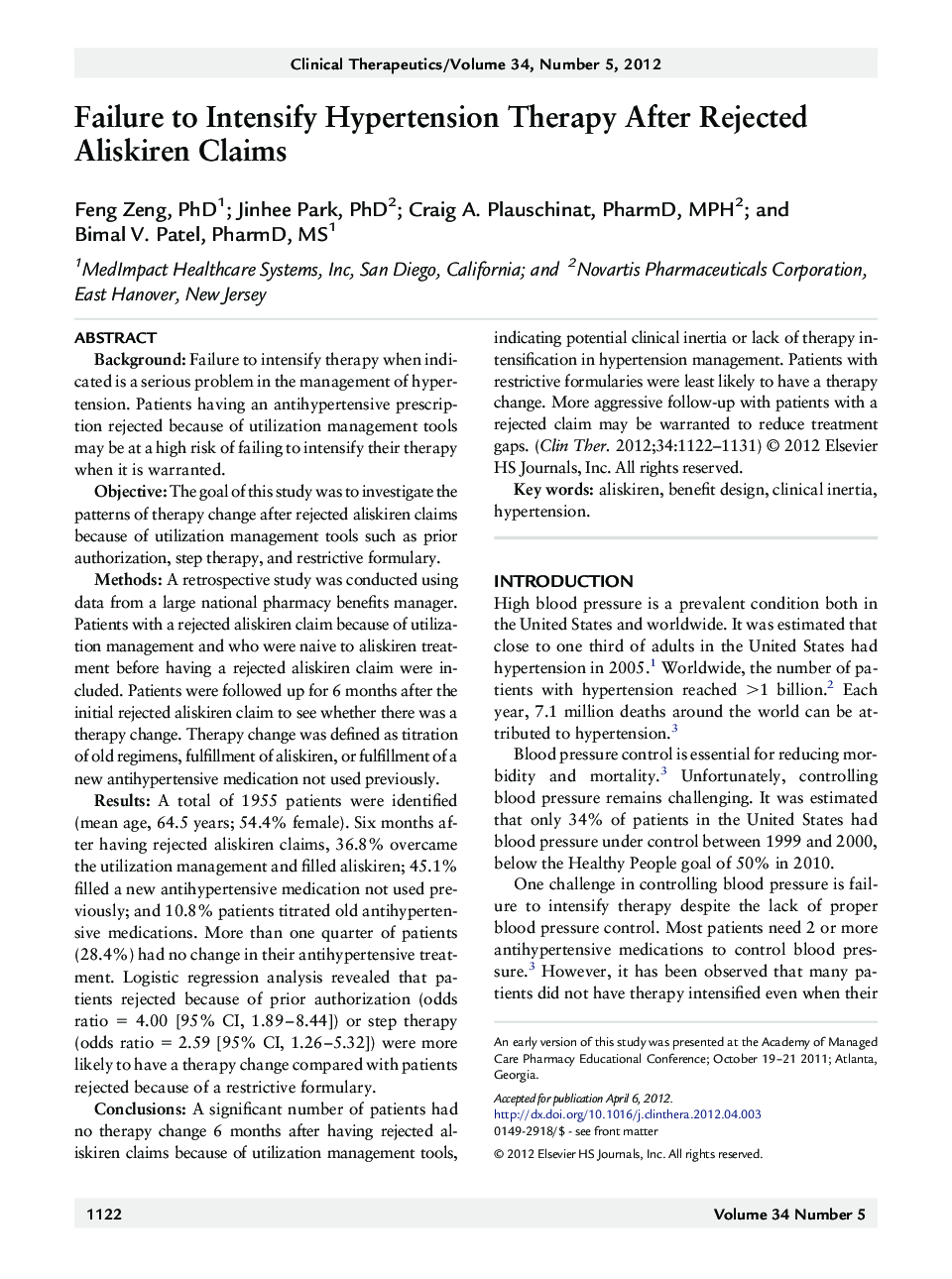| کد مقاله | کد نشریه | سال انتشار | مقاله انگلیسی | نسخه تمام متن |
|---|---|---|---|---|
| 2527885 | 1119945 | 2012 | 10 صفحه PDF | دانلود رایگان |

BackgroundFailure to intensify therapy when indicated is a serious problem in the management of hypertension. Patients having an antihypertensive prescription rejected because of utilization management tools may be at a high risk of failing to intensify their therapy when it is warranted.ObjectiveThe goal of this study was to investigate the patterns of therapy change after rejected aliskiren claims because of utilization management tools such as prior authorization, step therapy, and restrictive formulary.MethodsA retrospective study was conducted using data from a large national pharmacy benefits manager. Patients with a rejected aliskiren claim because of utilization management and who were naive to aliskiren treatment before having a rejected aliskiren claim were included. Patients were followed up for 6 months after the initial rejected aliskiren claim to see whether there was a therapy change. Therapy change was defined as titration of old regimens, fulfillment of aliskiren, or fulfillment of a new antihypertensive medication not used previously.ResultsA total of 1955 patients were identified (mean age, 64.5 years; 54.4% female). Six months after having rejected aliskiren claims, 36.8% overcame the utilization management and filled aliskiren; 45.1% filled a new antihypertensive medication not used previously; and 10.8% patients titrated old antihypertensive medications. More than one quarter of patients (28.4%) had no change in their antihypertensive treatment. Logistic regression analysis revealed that patients rejected because of prior authorization (odds ratio = 4.00 [95% CI, 1.89–8.44]) or step therapy (odds ratio = 2.59 [95% CI, 1.26–5.32]) were more likely to have a therapy change compared with patients rejected because of a restrictive formulary.ConclusionsA significant number of patients had no therapy change 6 months after having rejected aliskiren claims because of utilization management tools, indicating potential clinical inertia or lack of therapy intensification in hypertension management. Patients with restrictive formularies were least likely to have a therapy change. More aggressive follow-up with patients with a rejected claim may be warranted to reduce treatment gaps.
Journal: Clinical Therapeutics - Volume 34, Issue 5, May 2012, Pages 1122–1131